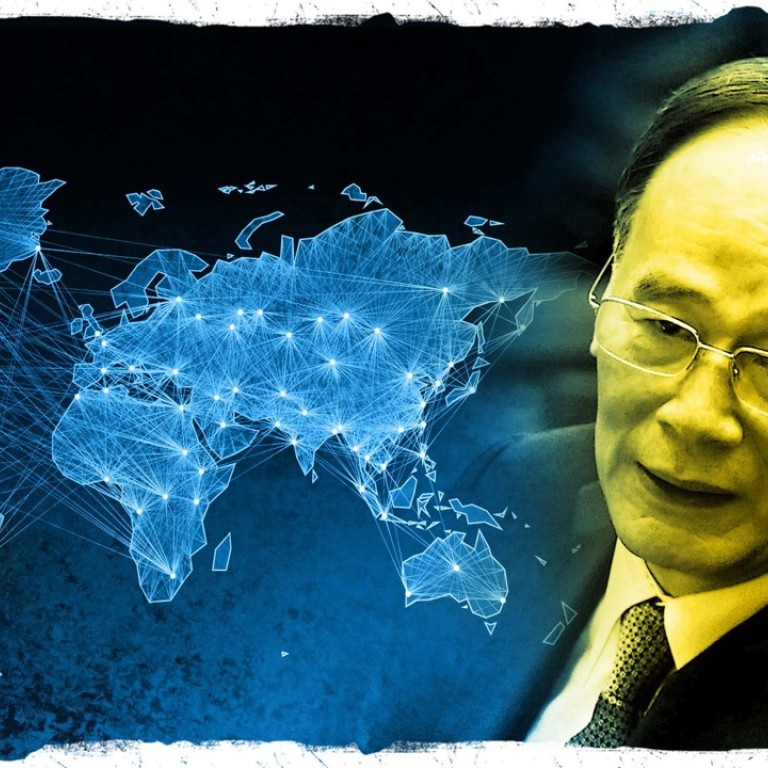
Will China’s new foreign policy dream team be the key to achieving its global ambitions?
Beijing’s top leadership is packed full of highly trained foreign affairs experts hand-picked to help deliver on President Xi Jinping’s global goals
After five years in office, President Xi Jinping has put together a team of top foreign-policy makers with substantial experience in handling the West, especially the US, to achieve China’s growing global ambitions.
Apart from Xi himself, the leading figure is Wang Qishan, the former Communist Party anti-graft tsar who is Xi’s most trusted ally.
According to several Beijing-based sources, Wang is highly likely to be named vice-president soon and take on a large foreign affairs portfolio in the midst of a major overhaul of the country’s diplomatic hierarchy.
“Wang will play a key role in foreign affairs work in the years to come, especially on thorny issues involving Sino-US relations,” a source close to the leadership told the South China Morning Post. He declined to be named because of the sensitivity of the matter.
Wang’s surprising comeback, just a few months after he retired from the party’s apex of power, is expected to give a boost to China’s diplomatic decision-making at a critical juncture, especially amid emerging strategic rivalry with the United States.
There have been signs hinting at Wang’s new role, with sources saying he recently met US and Japanese officials in Beijing.
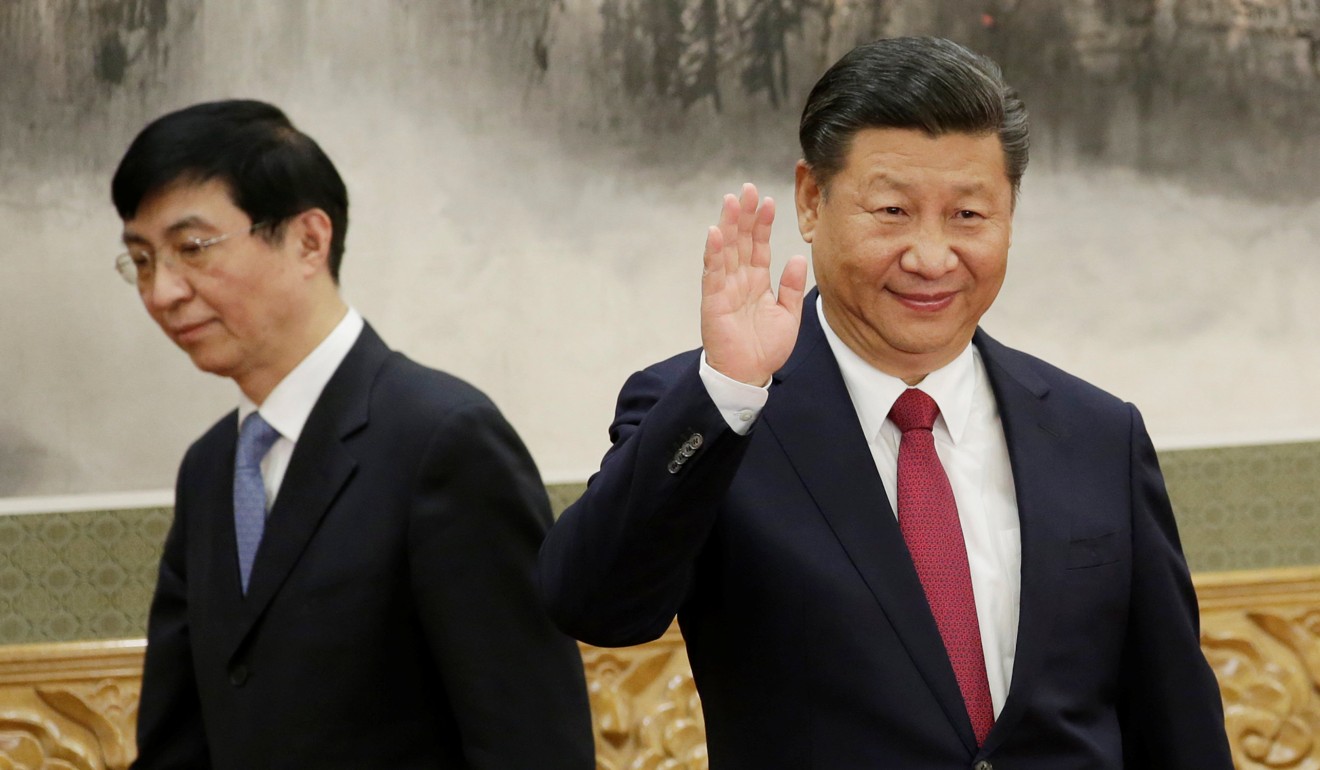
Unlike previous top leadership line-ups, the new Politburo Standing Committee announced after the party’s national congress in October is packed with foreign affairs experts, including outgoing Vice-Premier Wang Yang and Wang Huning, an international affairs scholar turned party theorist.
Wang Huning, known as the chief architect of Xi’s Chinese dream, has been a foreign policy adviser and often accompanied Xi on foreign trips.
Pang Zhongying, a Beijing-based foreign affairs expert, said Wang Huning was among the first Chinese experts to translate and introduce the concept of soft power to China in early 1990s. It had been coined by Harvard University professor Joseph Nye in the 1980s to encompass a country and an associated culture’s ability to attract and persuade.
Wang Huning, who became the first party theorist to be elevated to the Politburo Standing Committee since the end of the Cultural Revolution, is expected to play a big role in addressing the mismatch between Beijing’s outdated, China-centric propaganda apparatus and its grand foreign policy goals.
Another new Politburo Standing Committee member, Wang Yang, was China’s point man in economic talks with the US during Xi’s first five years as president.
Among career diplomats, State Councillor Yang Jiechi, a former foreign minister and ambassador to the US, is set to become China’s most powerful foreign affairs supremo since late vice-premier Qian Qichen. Also a former foreign minister, Qian was a vice-premier who served as a foreign policy guru in the party’s powerful Politburo under Jiang Zemin, and Yang looks to be on the same path after becoming a Politburo member in October.
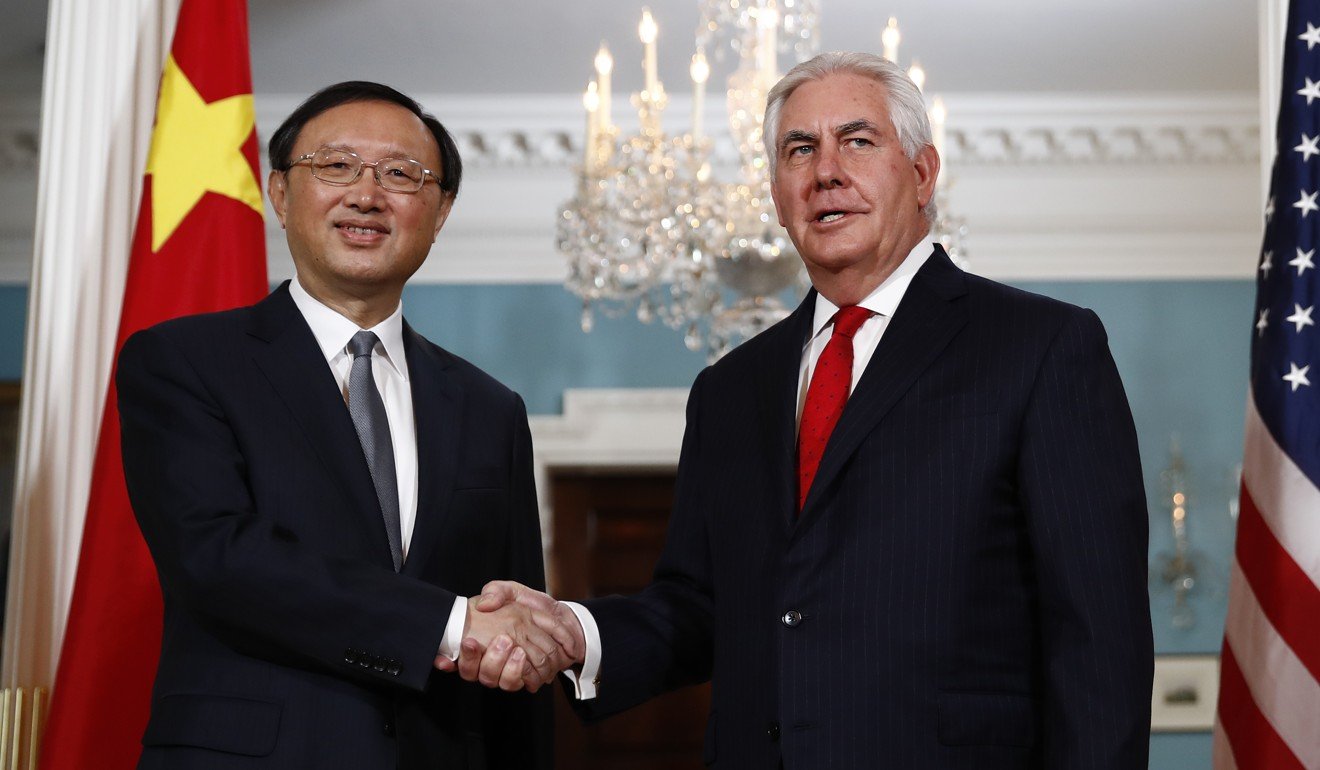
Wang Qishan’s appointment as vice-president will be formally confirmed at the annual session of the National People’s Congress (NPC), China’s legislature, next month, setting in motion a sweeping government reshuffle that will include vice-premiers, state councillors and prominent ministers.
Foreign Minister Wang Yi has been tipped to replace Yang as state councillor while retaining his current position as the country’s second-ranked diplomat, sources and party insiders said.
Pundits say the overhaul and strong line-up of foreign policy officials underlined Xi’s eagerness for China to emerge as a global power and project its political and economic clout far beyond the Asia-Pacific region at a time of US retreat from world leadership under his American counterpart Donald Trump.
Wang Qishan, 69, Yang, 67, and Wang Yi, 64, are above or approaching the traditional retirement age for senior officials, but the pundits say Xi appears to view them as irreplaceable for the moment in implementing his assertive foreign policy and overseeing China’s expanding global interests.
There are growing signs that Wang Qishan, once seen as China’s second most powerful leader after Xi, will not just take on ceremonial duties as vice-president but will continue to wield considerable influence in the country’s secretive and opaque elite politics.
As in most other countries, the vice-presidency in China has usually been a weak, ceremonial, titular position with little sway over real policy issues.
But Wang Qishan is likely to be different. In a sign of his close ties with party general secretary Xi, the former Politburo Standing Committee member had been continuing to attend meetings of the party’s innermost circle of power, albeit without voting power, sources said.
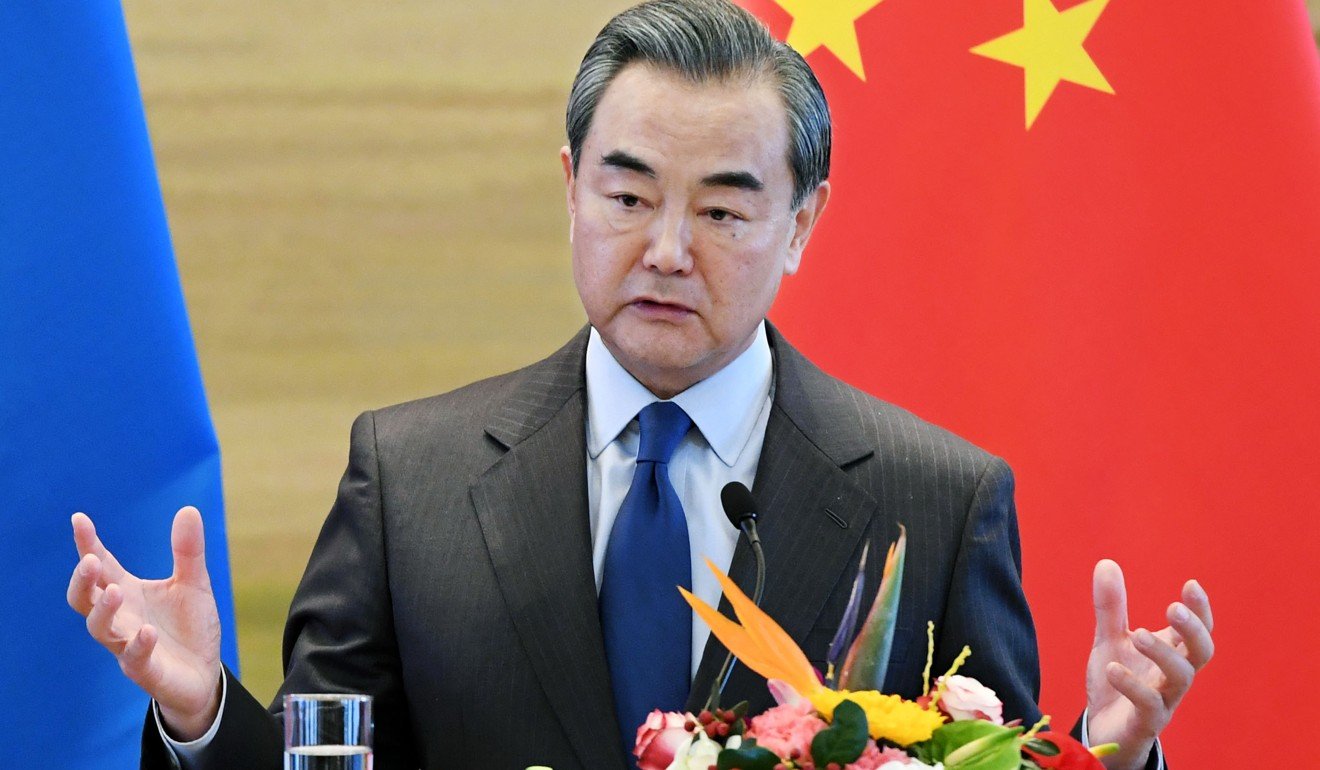
In a further move defying political convention in China, which includes an unwritten rule that top leaders retire at the age of 68, he retained his NPC seat last month, paving the way for his vice-presidency.
Wang Qishan’s political future was the centre of intense speculation in China’s corridors of power over the past year. His continued roles basically confirmed widespread rumours that an increasingly strident Xi had decided to retain one of his most trusted allies.
Wang Qishan earned that trust by overseeing Xi’s ruthless crackdown on corruption over the past five years.
American officials and experts have generally welcomed Wang Qishan’s likely vice-presidency as he has been heavily involved in dealing with Washington in various jobs over the past two decades, especially on the economic and trade fronts.
As a vice-premier he was China’s point man and top negotiator in the now-defunct strategic and economic dialogue with the US between 2009 and 2012.
Senior US diplomats who know Wang personally describe him as a party veteran with a global vision, an advocate of economic reform and a seasoned troubleshooter who understands the importance of navigating often fraught US-China relations in an increasingly chaotic and uncertain world.
One foreign diplomat who has met Wang described him as articulate and said he appeared to be someone Xi trusted to solve problems.
But the scope of his power or his exact role in China’s largely centralised foreign-policy decision-making process remain unclear.
Even more intriguingly, it remains to be seen how he would coordinate and work with other party leaders and top diplomats, especially Yang, Wang Yi and Song Tao, the head of the party’s international liaison department, which is in charge of ties with foreign political parties.
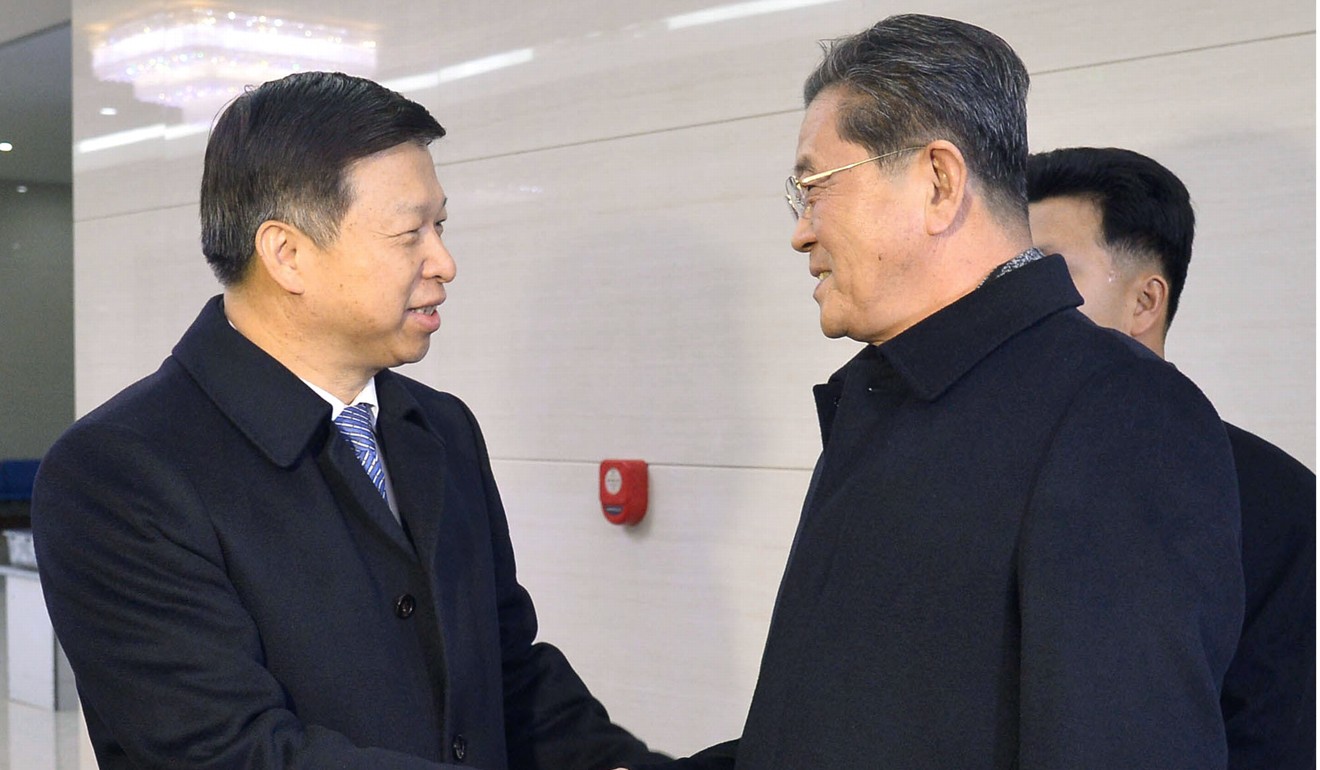
“While it is positive to have more people with diplomatic expertise and experience on board, it is too early to tell if they are able to work together efficiently as a lack of efficient coordination has long plagued the decision-making and implementation of China’s foreign policy,” Pang said.
It could pose new challenges and dilemmas for internal coordination, which would go beyond cooperation and collaboration between the military and civilian authorities, he said.
As vice-president, Wang Qishan would also be expected to replace incumbent Li Yuanchao as deputy head of the Central Leading Group on Foreign Affairs, a powerful supra-ministerial decision-making body.
The group, like more than a dozen other leading groups and other decision-making party institutions Xi chairs to drive policy on security, political, economic and diplomatic issues, consists of a dozen party and government agencies, including the foreign and commerce ministries as well as the military and security authorities,
Several Beijing-based European diplomats said there were growing signs Wang Yi, tipped to succeed Yang as state councillor, would also stay on as foreign minister in the government reshuffle next month.
Yang is director of the office of the Central Leading Group on Foreign Affairs, dealing with the daily routines of foreign policy coordination and implementation, while Wang Yi is also a member of the group. There had been speculation Yang might be promoted to become a second deputy head of the group, alongside the vice-president, with Wang Yi succeeding him as office head, but sources said Yang was likely to remain director. In either scenario, Wang Yi would continue to serve under Yang.
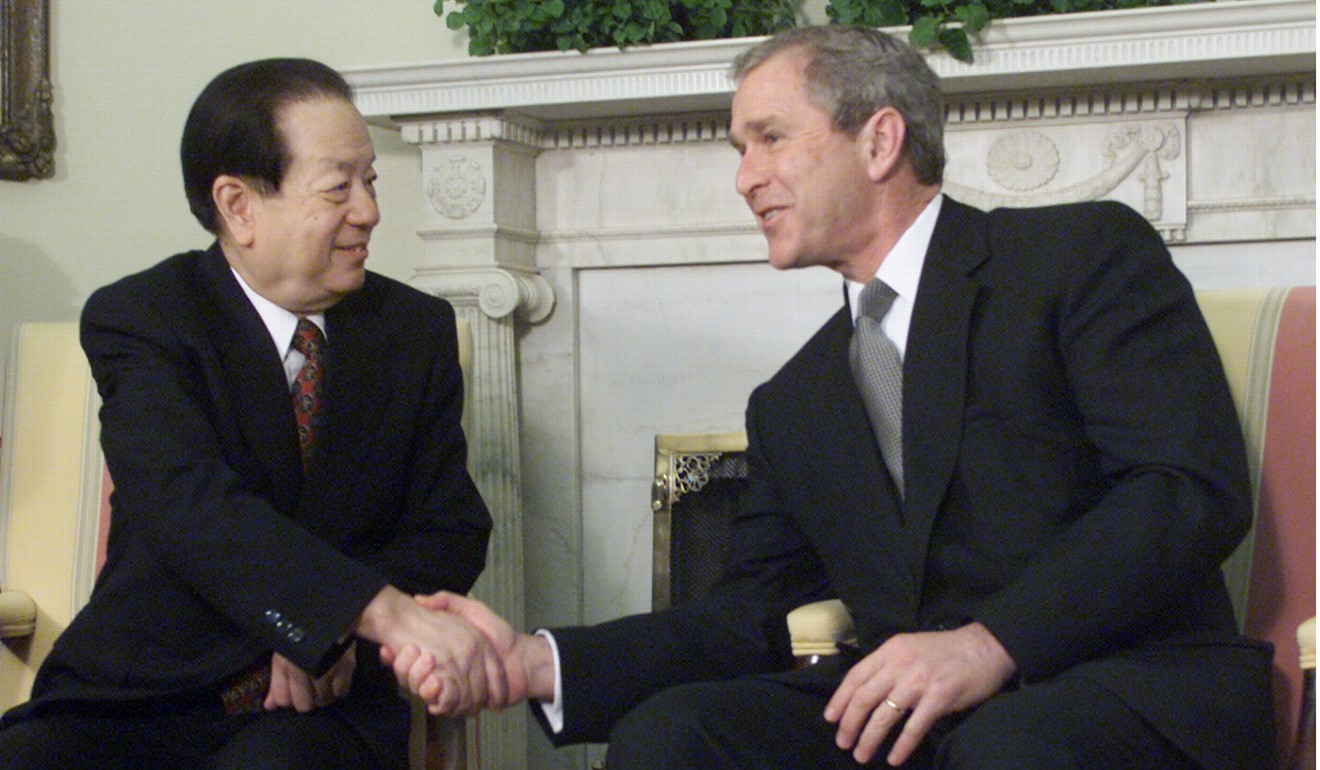
But officials and experts said that if Wang Yi became a state councillor, Yang was unlikely to become the first vice-premier in charge of foreign affairs since Qian Qichen stepped down in 2003, as previously speculated because such an appointment was very rare.
The last time China officially had both a vice-premier, usually a Politburo post, and a state councillor, which ranks above cabinet ministers, overseeing foreign policy was soon after the bloody Tiananmen Square crackdown in 1989.
But then vice-premier Wu Xueqian was largely sidelined for political reasons, while Qian was promoted to state councillor in 1991 while still serving as foreign minister before replacing Wu as vice-premier two years later. He was both foreign minister and vice-premier for the next five years.
The rumoured moves are being widely read by Chinese diplomats and international affairs experts as signalling an end to the erosion of the foreign ministry’s role in China’s diplomatic decision-making hierarchy over the past decade.
However, it remains to be seen if the overhaul of the foreign policy structure will help tackle long-term problems such as wrangling and poor coordination among various party and government agencies and inconsistency between what officials say and what they do.
One area that requires coordination is the stances of the military and the civilian government.
There was an embarrassing moment in January 2011 when the Chinese military staged the maiden test flight of the J-20 stealth fighter jet during a visit by then US defence secretary Robert Gates aimed at defusing military tensions between the two big powers.
After raising the test flight during a meeting with then president Hu Jintao, Gates told reporters the Chinese leader was taken aback and appeared to have little idea the military had been planning such a muscle-flexing move.
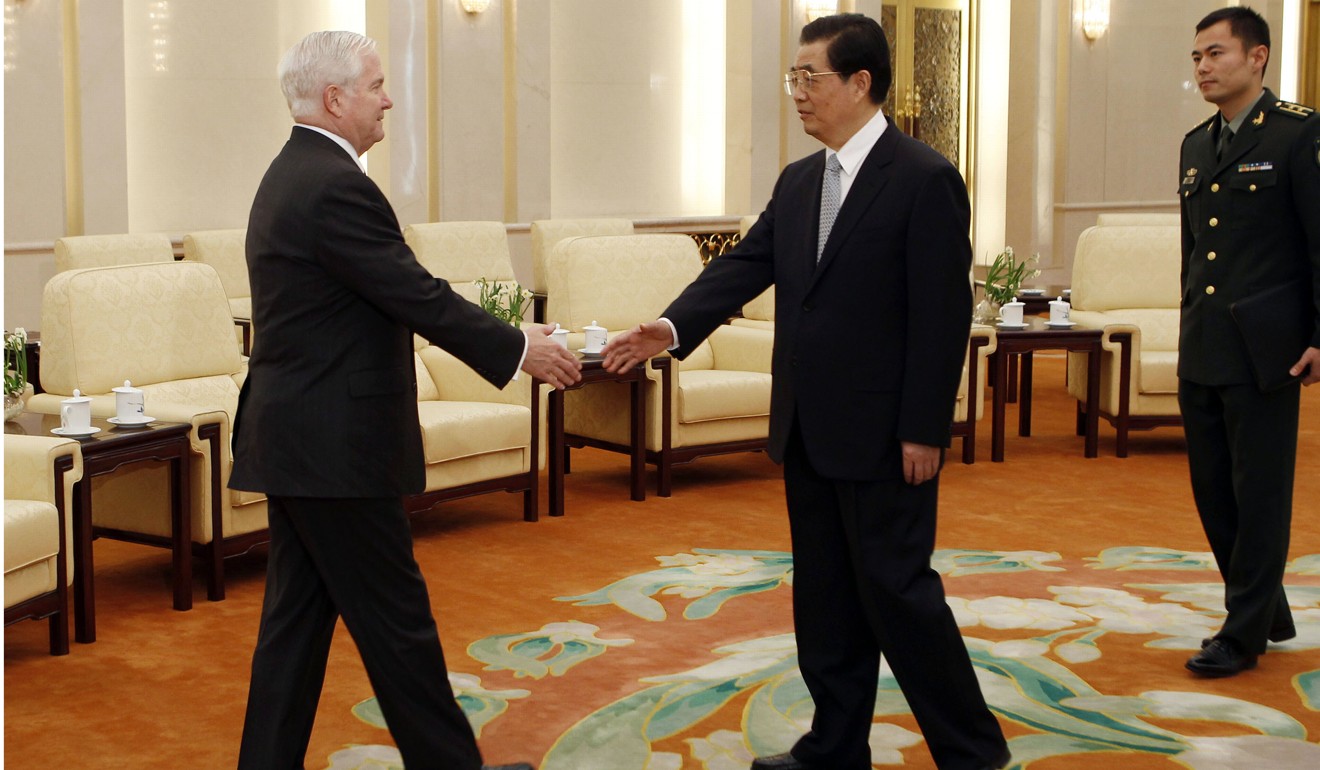
There may have been a similar incident last month, when a Chinese submarine was spotted by the Japanese navy near the disputed Diaoyu Islands, known as the Senkakus in Japan. While the Chinese authorities did not explain what had happened, military experts said the submarine could have been forced to leave the waters around the islands, which are claimed by both countries.
Foreign relations experts said the incident had overshadowed Japanese Foreign Minister Taro Kono’s first trip to Beijing just two weeks later.
Beijing-based security expert Zhang Tuosheng, director of the Centre for Foreign Policy Studies at the China Foundation for International and Strategic Studies, said it could be a sign the military and civilian authorities were still not communicating and coordinating effectively ahead of important diplomatic events.
He said Beijing had rolled out quite a few moves in the past decade aimed at streamlining the multi-layered decision-making process and smoothing out wrinkles in inter-agency coordination, including the establishment of the National Security Commission (NSC) in 2013.
“However, we have yet to see significant improvement as some of the existing bodies are repetitive and overlapping, with many yet to be clearly defined,” Zhang said.
The NSC, modelled on the similarly named US agency, was supposed to play a big role in decision-making and coordination on foreign policy issues at the top leadership level, but it has largely disappeared from view after its first meeting four years ago.
Zhang said there was a need for “an overarching agency like NSC and professionals and experts to help with decision-making”, but the NSC had, unfortunately, not operated as efficiently as expected.
Zhang and other observers also noted that like the NSC and the Central Leading Group on Foreign Affairs, most Chinese bodies tasked with coordinating foreign policy were secretive party organs instead of government ones, which made it hard for them to deal with their foreign counterparts.
“With China’s rise to global prominence, we will inevitably be facing more challenges, scepticism and pushbacks from other countries and it remains to be seen if the new leadership is up to task of turning the country into a responsible world power and securing a favourable international environment for domestic development,” Pang said.
Additional reporting by Choi Chi-yuk, Catherine Wong and Laura Zhou

